SHOWING PROMISE
UH Researchers Explore Options for COVID-19 Prevention and Treatment
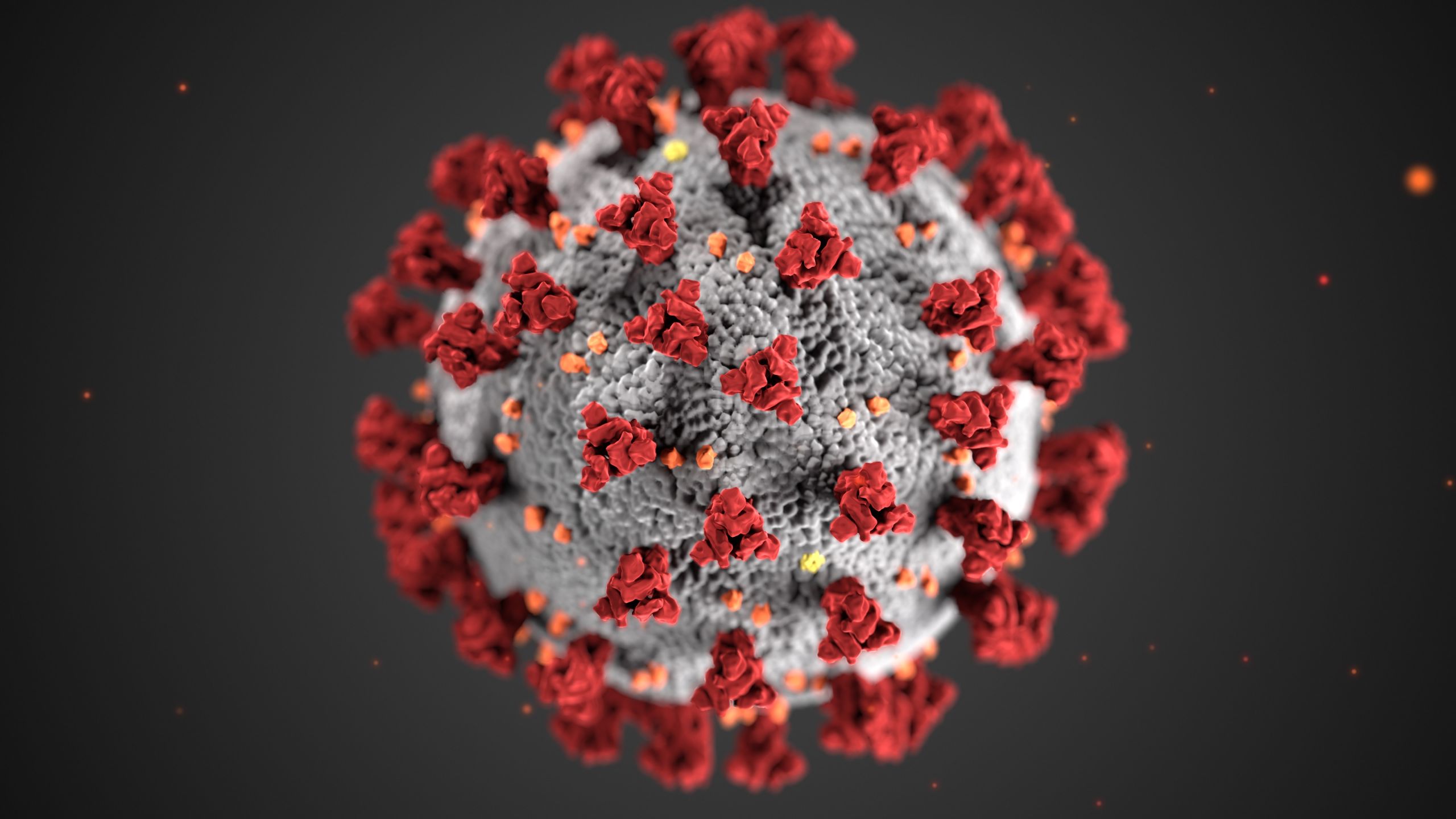
Not since the mid-twentieth century, amid the polio epidemic, have vaccines or drug treatment been so widely anticipated as those for COVID-19. In 1955 when the polio vaccine was licensed, the health outlook for millions of children improved and normal life resumed. Still, not all pandemics have found such resolution. Since the 1980s, more than 70 million people have been infected with the HIV virus, 35 million have died from AIDS, and still no vaccine exists, though a daily drug combination can reduce a person’s HIV viral load to an undetectable level.
Across the world, efforts continue to develop medicines to put the coronavirus to rest, including at the University of Houston. Two researchers are working on vaccines, and another is working on a drug to block the virus.
GOMIKA UDUGAMASOORIYA
Associate Professor of Pharmacological and Pharmaceutical Sciences
Finding a Drug to Block Entry
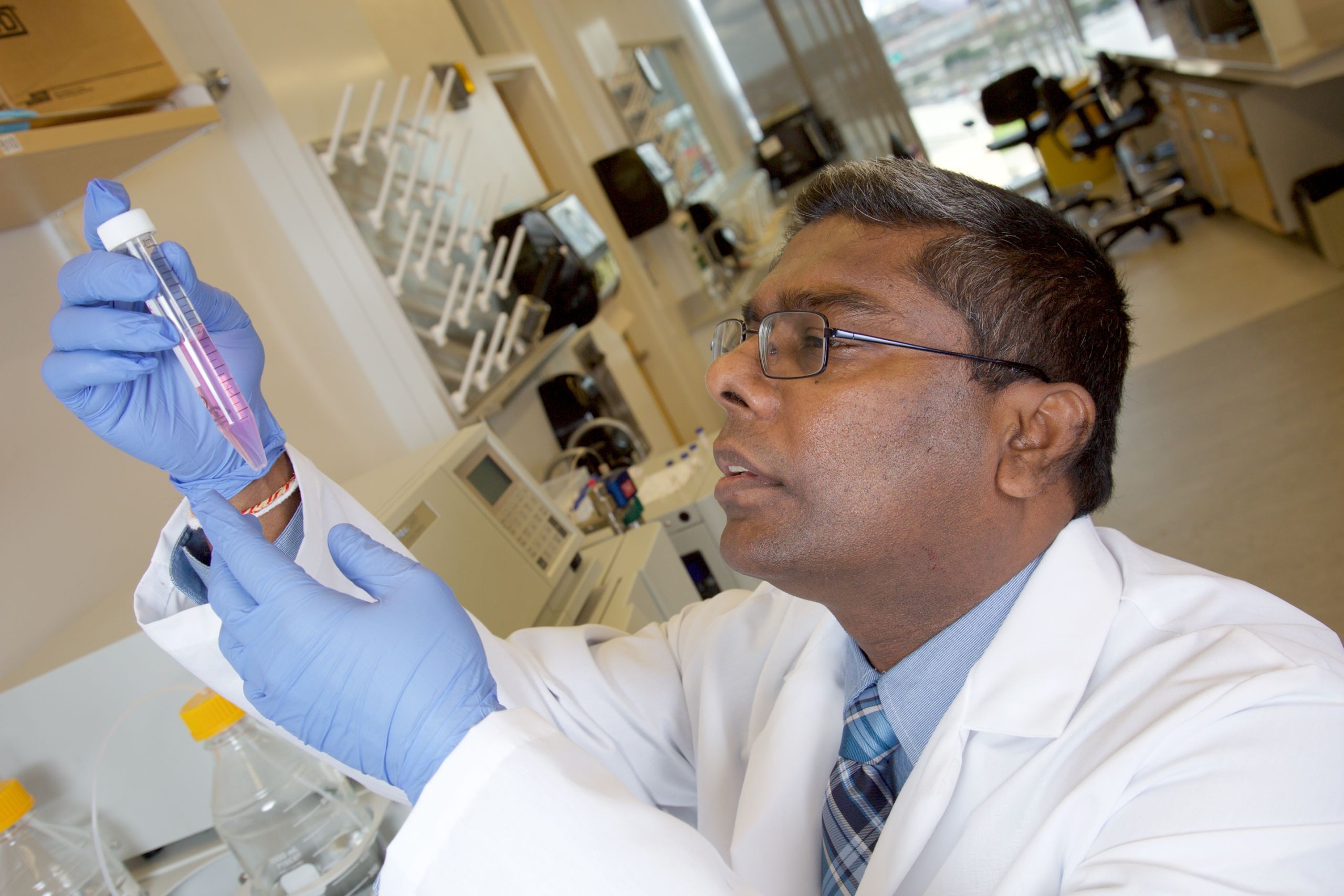
To create a drug that could prevent coronavirus, Gomika Udugamasooriya, associate professor of pharmacological and pharmaceutical sciences, first unravels how the virus enters the human body.
“The human entry of coronaviruses depends on first binding of the viral spike proteins to human cellular receptors that basically offer a cellular doorknob,” said Udugamasooriya. “The virus latches onto the specific human cellular receptor, ACE2, and sneaks inside to replicate itself within the cell to spread throughout the body.”
Following that line, treatments that can block the ACE2 receptor could stop virus entry into the body. “Our approach physically “guards” the entry point - the door – so the virus cannot enter,” he said.
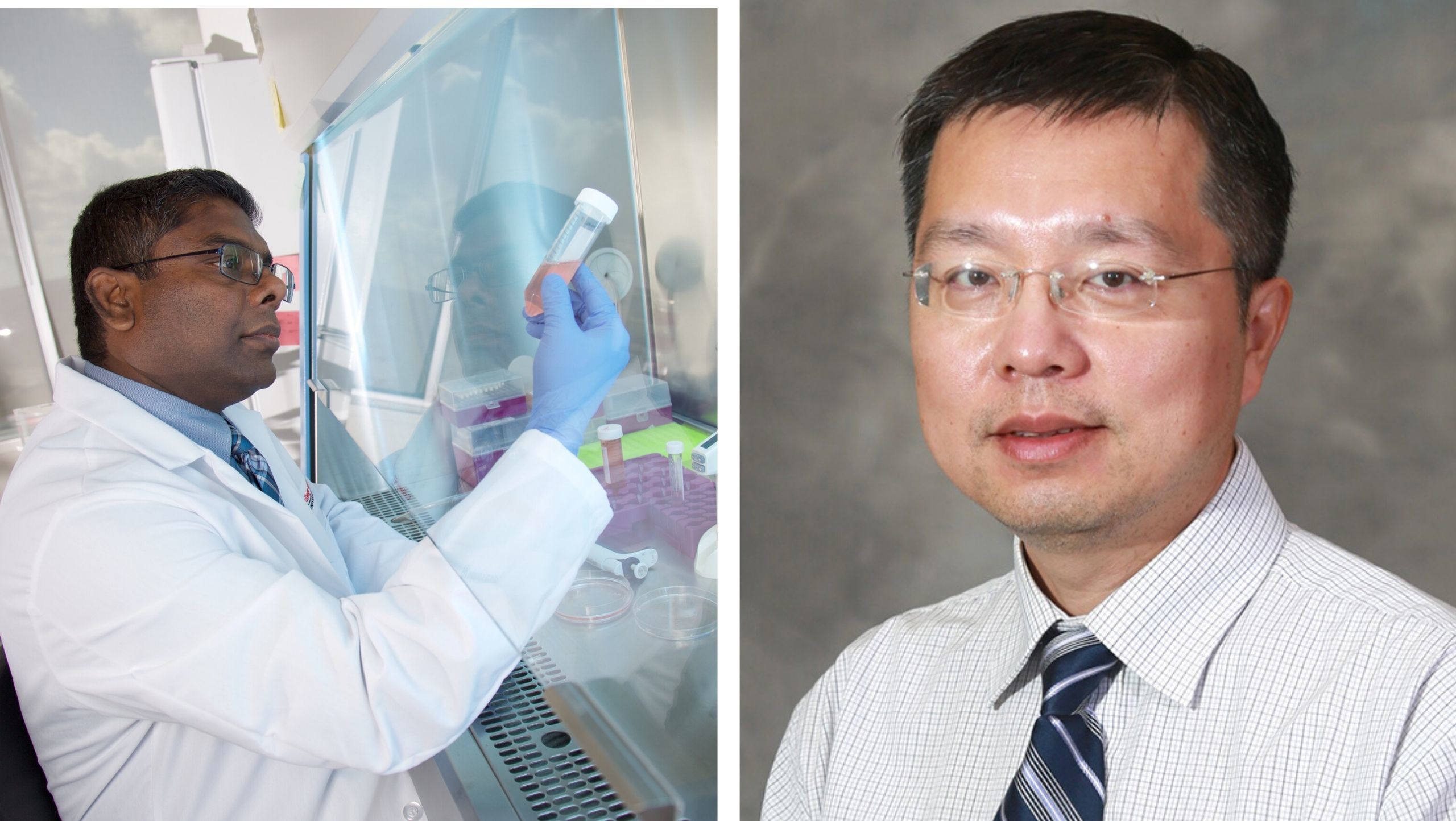
In search of a drug to prevent COVID-19, UH College of Pharmacy professors Gomika Udugamasooriya (L) and Bin Guo (R) are learning more about how the virus enters the human body.
In search of a drug to prevent COVID-19, UH College of Pharmacy professors Gomika Udugamasooriya (L) and Bin Guo (R) are learning more about how the virus enters the human body.
Udugamasooriya and collaborator Bin Guo, associate professor of pharmaceutics, are applying their unique cell-screening technology to identify specific synthetic chemical drug leads called peptoids that can bind to ACE2 receptor.
“Peptoids are easier to make, compatible with biological systems and economical to produce,” said Udugamasooriya. The project is currently at the initial screening levels and identified drug-lead validations will be performed in the future.
NAVIN VARADARAJAN
Professor of Chemical and Biomolecular Engineering
Testing Inhalation Vaccines
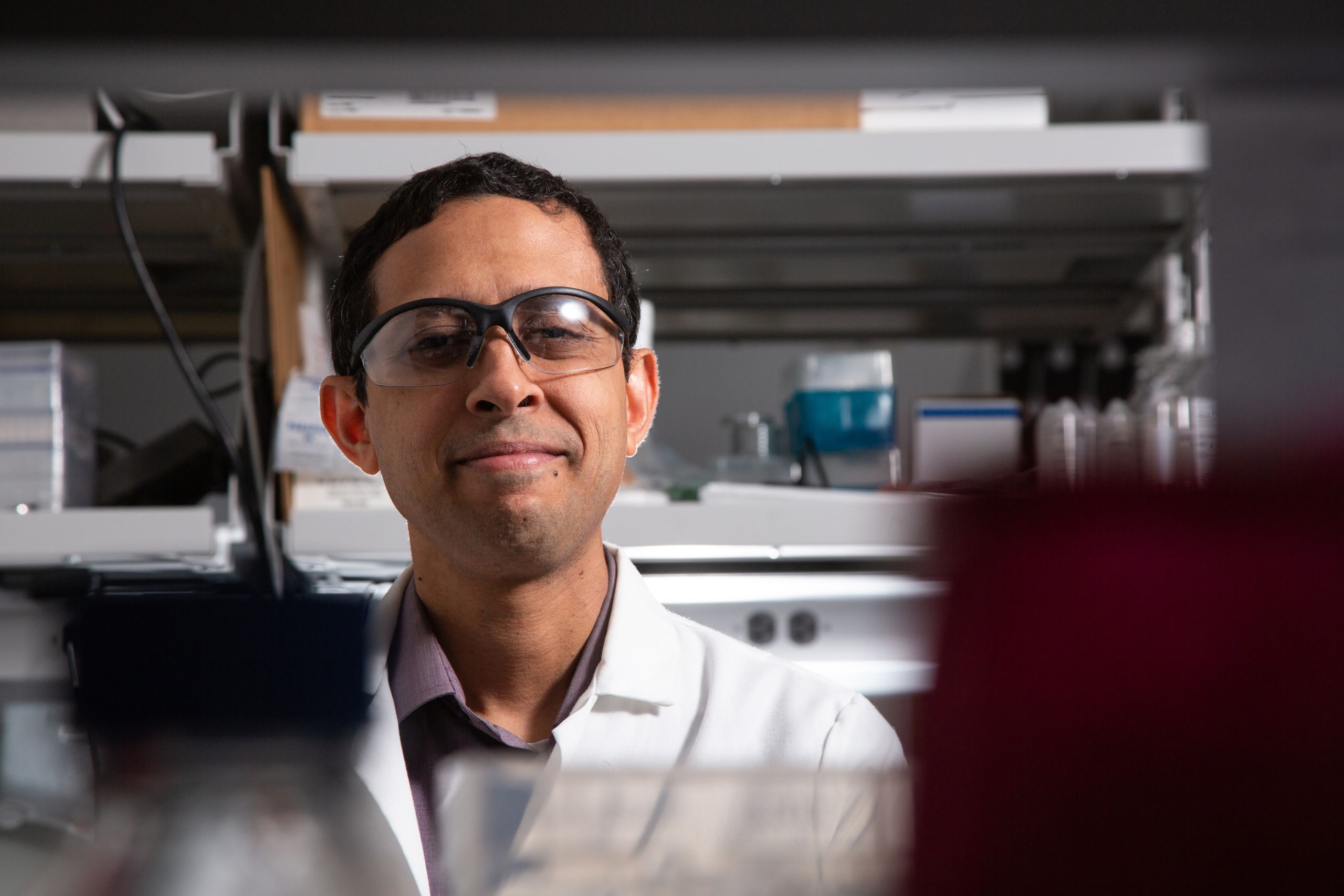
Navin Varadarajan, M.D. Anderson Associate Professor of Chemical and Biomolecular Engineering is testing inhalation vaccines. Think FluMist for COVID-19.
“For airborne pathogens, the nasal mucosa is the first point of defense that needs to be breached,” said Varadarajan. “Mucosal immunity and vaccines are fundamentally important for a wide range of pathogens including influenza, severe acute respiratory syndrome coronavirus (SARS-CoV) and the current SARS-CoV-2.” Still, he said, nasopharyngeal immunity is understudied.
Varadarajan is using the spike protein, which helps the virus enter the target cell, and is the major target for neutralizing antibodies as it binds to the cellular receptor called angiotensin converting enzyme-2 (ACE2) for virus entry. He prefers using proteins because of their ability to induce strong immune responses, flexibility and scalability, and absence of infectious particles.
Varadarajan notes several considerations of pivotal importance in designing an efficient, but safe mucosal vaccine.
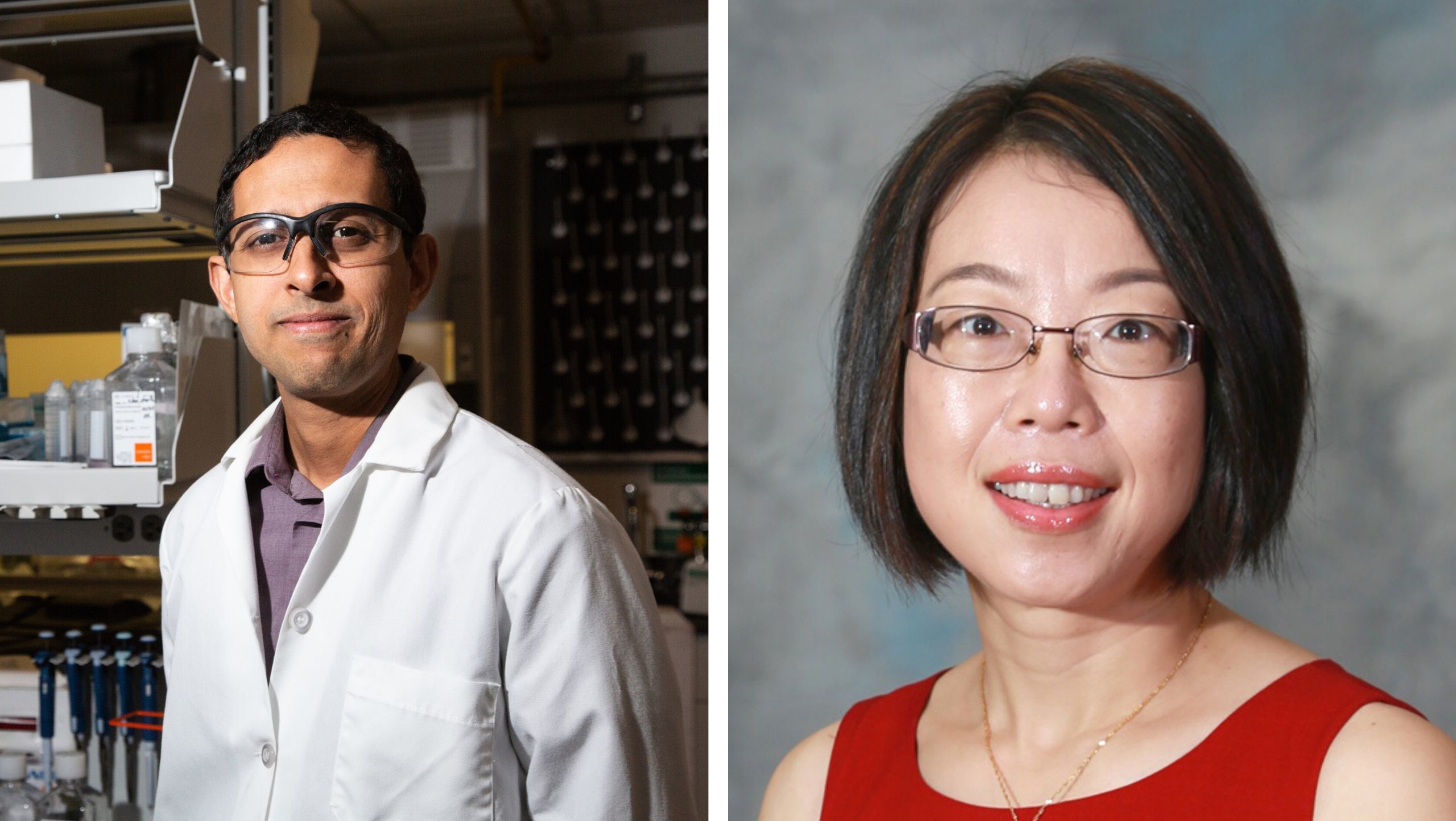
UH engineering professor Navin Varadarajan (L) and pharmaceutics professor Xinli Liu (R) are collaborating on development and testing of a COVID-19 inhalation vaccine.
UH engineering professor Navin Varadarajan (L) and pharmaceutics professor Xinli Liu (R) are collaborating on development and testing of a COVID-19 inhalation vaccine.
“As with any vaccine, a variety of factors determine their efficacy including the antigen used for electing a response, the adjuvants and immunomodulators, the efficient delivery of the antigen to appropriate target cells, and the route of vaccination,” he said. Varadarajan is collaborating with Xinli Liu, associate professor of pharmaceutics, who is synthesizing a new liposomal adjuvant.
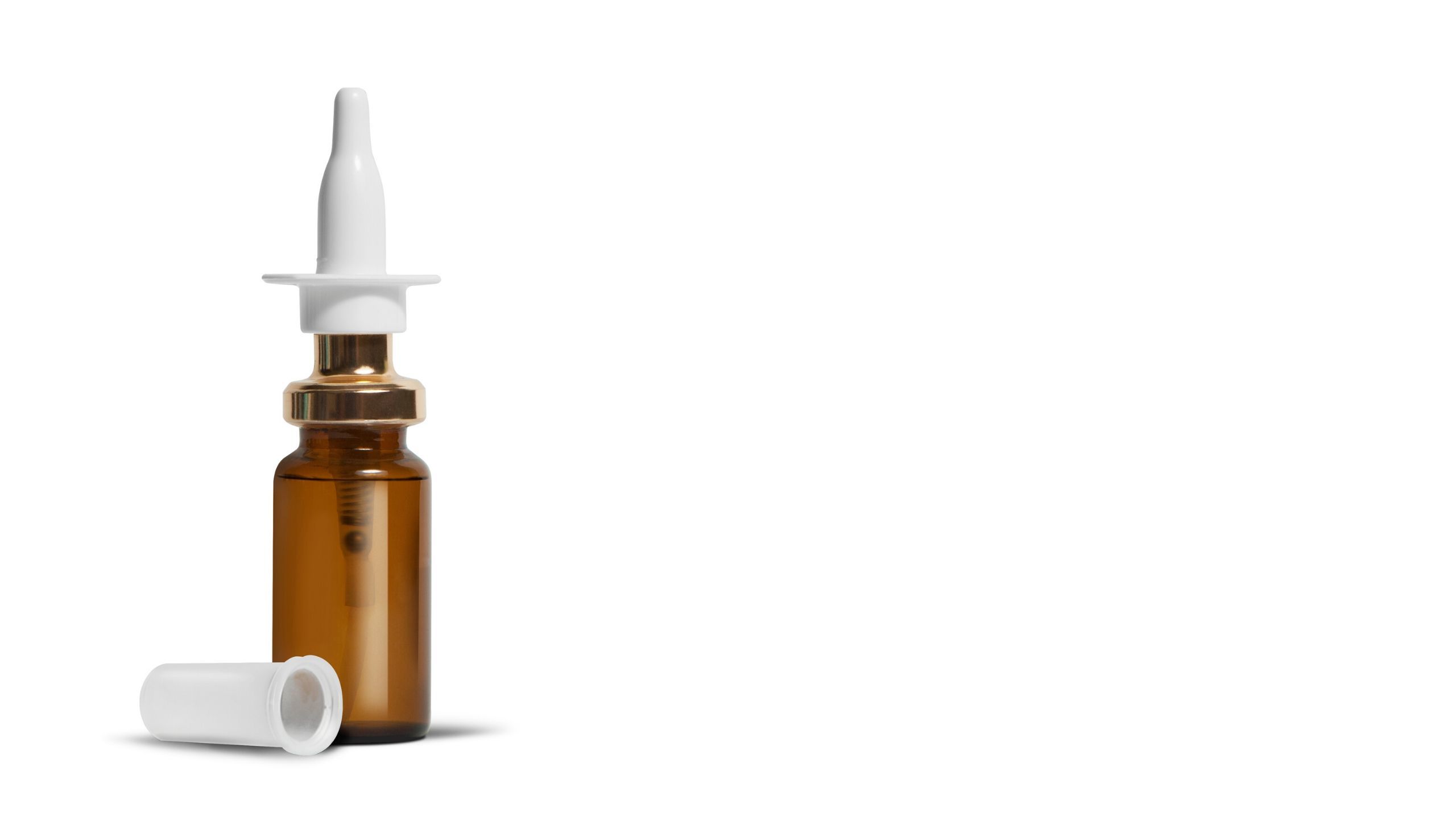
SHAUN ZHANG
Professor of Biology and Biochemistry
Exploring Vaccine by Injection
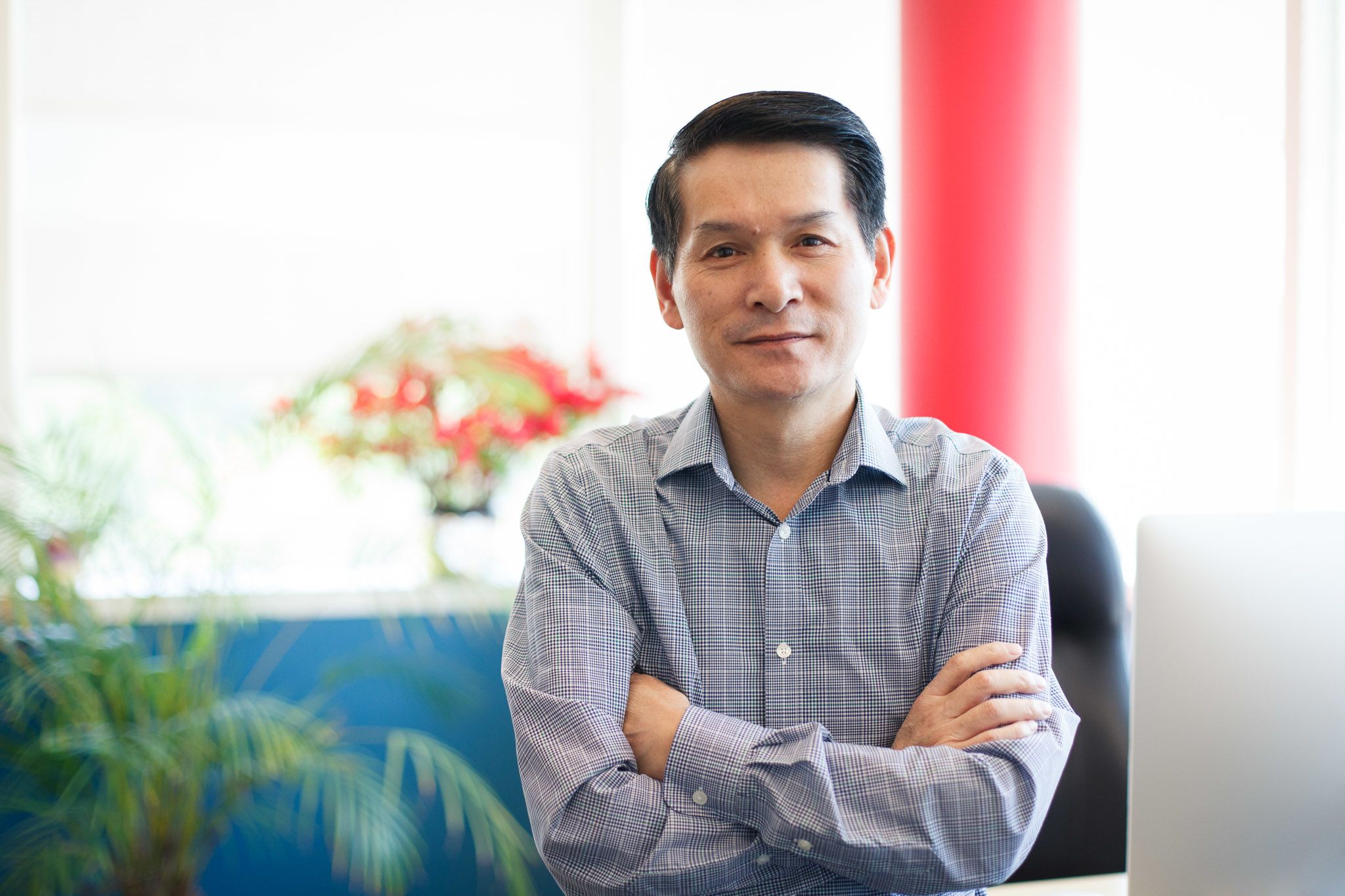
As the director for the Center for Nuclear Receptors and Cell Signaling, M.D. Anderson Professor of Biology and Biochemistry Shaun Zhang is used to developing new biotherapies and vaccines for unmet needs in cancer and viral infection. Now he’s turned his attention to the greatest unmet medical need before all humankind – a vaccine for COVID-19 – developing three vaccine candidates for injection, which he has evaluated for neutralizing antibody production.
So far, the results look good.
“The data collected from our studies show that our vaccine candidates can generate neutralizing antibodies, which can protect cells from infection by SARS-CoV-2 when tested in vitro," said Zhang. “We are now working on further improvement for the vaccine design.”
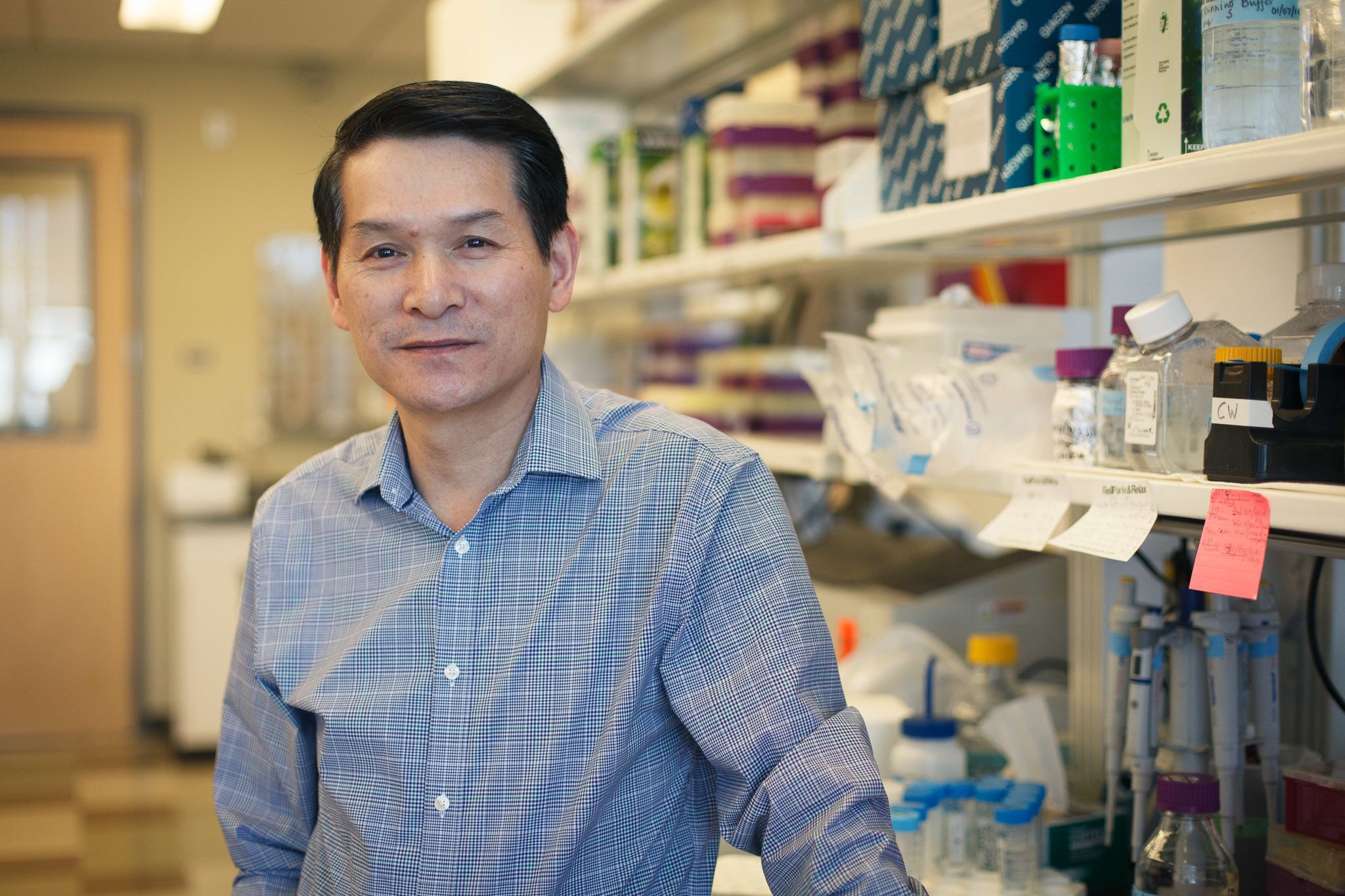
UH Professor Shaun Zhang is in the process of developing three COVID-19 vaccine candidates for injection.
UH Professor Shaun Zhang is in the process of developing three COVID-19 vaccine candidates for injection.
Zhang’s vaccine candidates include a subunit vaccine containing either the entire spike protein or the receptor binding portion, which helps the virus enter the target cell, and delivered either by DNA formulation or by a herpes simplex virus-based vector.
Zhang is working to improve the formulations to simultaneously enhance the immune responses, simplify the procedure and reduce the cost of preparation.
